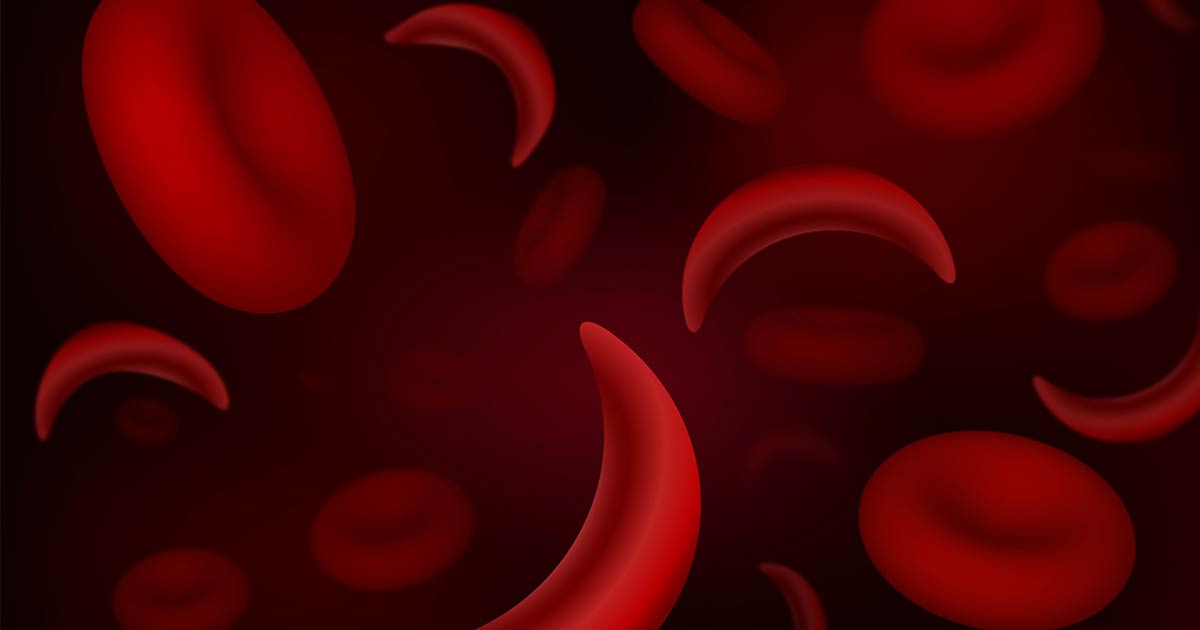Learning about Sickle Cell Disease
- Category: Health & Wellness
- Posted On:
- Written By: LVMC

Sickle Cell Disease is an inherited blood disorder that causes the red blood cells to change shape and “sickle.” Normal red blood cells are round and carry oxygen through your blood vessels to organs throughout the body. But sickle cells get stuck in blood vessels and block the flow of blood — causing damage to organs.
Repeated episodes of blockage lead to pain, infections, organ damage, stroke, and heart attacks.
Sickle cell disease is inherited and cannot be contracted from person to person. The Sickle cell trait occurs when one inherits one sickle cell gene and one normal gene.
Unlike more prevalent diseases, sickle cell affects just 90,000 to 100,000 people in the U.S. It is generally more common in people of African origin, Mediterranean, South American, and South-Asian/Indian ancestry.
Statistics indicate that 1-in-500 African Americans and 1-in-36,000 Hispanic Americans have sickle cell disease. It is also known as Sickle Cell Anemia, Hemoglobin S, or SS disease.
In the U.S., all newborns are tested for sickle cell disease before they leave the hospital following their births. Some parents can be checked for the sickle cell gene prior to pregnancy to determine the risk of having a child with sickle cell disease.
What are the complications of sickle cell disease?
There are many complications of sickle cell disease.
- Pain episodes/Crisis: Pain caused when sickled cells get stuck in blood vessels, clog up the vessels, decrease perfusion, and cause pain. Pain is typically severe and can last days. The pain is more common in long bones.
- Hand and foot syndrome: This is more common in infants and children. Children will present with swelling in hands and feet with associated fever and pain.
- Infection: People with sickle cell disease are prone to bacterial and viral infections such as meningitis, flu, and hepatitis.
- Eye disease: sickle cell disease causes eye disease, eye damage, and jaundice
How is sickle cell treated?
Different treatment modalities are used depending on symptoms and presentation. When a person with the disease sees a physician for treatment of pain, it is treated with increased hydration and pain medication. Blood transfusions can also be used for anemia, acute chest syndrome, and pain crisis. In some cases, antibiotics are given to prevent and cure infections.
Hydroxyurea is a medication used for the management of severe sickle cell anemia. This medication increases the amount of fetal oxygen, which has a higher affinity of oxygen and decreases episodes of pain crises and also decreased episodes of ACS. Hydroxyurea treats sickle cell anemia by helping to prevent the formation of sickle-shaped red blood cells. Hydroxyurea also decreases hospital admissions and hospital stays.
Vaccines are given to those with sickle cell disease to prevent infection and Folic acid is used to help with making red blood cells.
A patient may also receive L-glutamine/Endaril. This medication can help decrease pain episodes. It is used in severe sickle cell disease and in people who do not tolerate or do not improve with hydroxyurea. It is given to people older than 5 years.
What is the cure for sickle cell disease?
Sickle cell disease can be cured with a bone marrow transplant or stem cell transplant. During a bone marrow transplant or stem cell transplant, healthy stem cells from a donor are taken and transferred into the bone marrow of the person with the abnormal cells. These healthy stem cells cause the bone marrow to make healthy new cells.
But those in this position should know that a bone marrow transplant procedure is a high-risk procedure that can lead to side effects such as infections and death. Prior to such a procedure, rigorous studies are performed on the person with the disease and the transplant donor to ensure that the bone marrow is a close match to prevent complications.
Living well with Sickle Cell Disease
It is possible to enjoy an active life with this disease. It is important to find good medical care for this complex disease. Often, patients find a hematologist, or a physician specializing in blood disorders and diseases. Regular check-ups are critical and it is important to prevent infection.
Drinking 8-to-10 glasses of water daily and eating healthy will aid in the management of the disease. Finding a support group or community organization focused on Sickle Cell Disease will also be very helpful.






